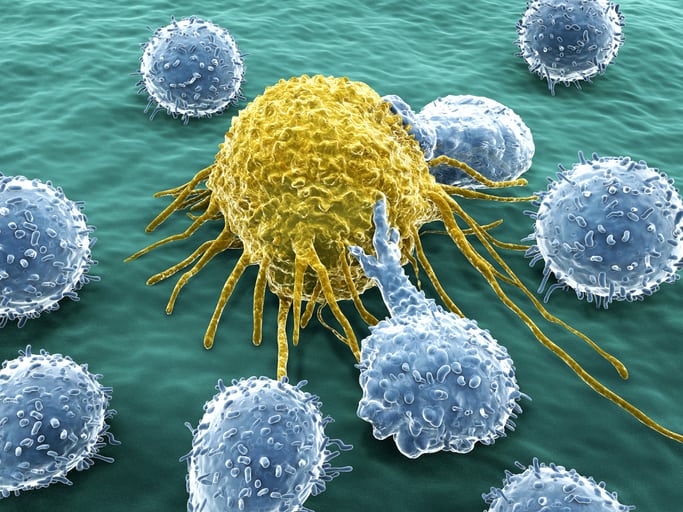Tyrosine kinase inhibitors (TKIs) targeting BCR-ABL1 have revolutionized therapy for chronic myeloid leukemia (CML), paving the way for clinical development in other diseases. Despite success, targeting leukemic stem cells and overcoming drug resistance remain challenges for curative cancer therapy. To identify drivers of kinase-independent TKI resistance in CML, we performed genome-wide expression analyses on TKI-resistant versus sensitive CML cell lines, revealing a nuclear factor-kappa B (NF-κB) expression signature. Nucleocytoplasmic fractionation and luciferase reporter assays confirmed increased NF-κB activity in the nucleus of TKI-resistant versus sensitive CML cell lines and CD34 patient samples. Two genes that were upregulated in TKI-resistant CML cells were proteasome 26S subunit, non-ATPases 1 (PSMD1) and 3 (PSMD3), both members of the 19S regulatory complex in the 26S proteasome. PSMD1 and PSMD3 were also identified as survival-critical genes in a published small hairpin RNA library screen of TKI resistance. We observed markedly higher levels of PSMD1 and PSMD3 mRNA in CML patients who had progressed to the blast phase compared with the chronic phase of the disease. Knockdown of PSMD1 or PSMD3 protein correlated with reduced survival and increased apoptosis in CML cells, but not in normal cord blood CD34 progenitors. Luciferase reporter assays and immunoblot analyses demonstrated that PSMD1 and PSMD3 promote NF-κB protein expression in CML, and that signal transducer and activator of transcription 3 (STAT3) further activates NF-κB in scenarios of TKI resistance. Our data identify NF-κB as a transcriptional driver in TKI resistance, and implicate PSMD1 and PSMD3 as plausible therapeutic targets worthy of future investigation in CML and possibly other malignancies.
Proteasome 26S subunit, non-ATPases 1 (PSMD1) and 3 (PSMD3), play an oncogenic role in chronic myeloid leukemia by stabilizing nuclear factor-kappa B.


